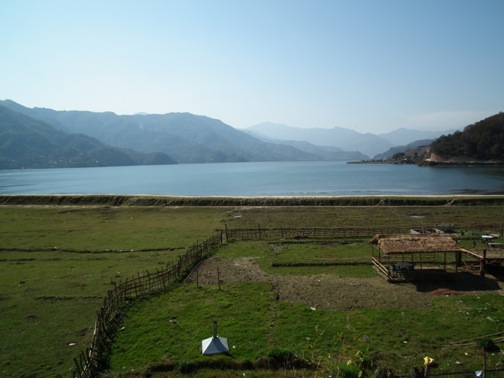Seven months after we were married, we officially hosted our first Shabbos guest as a married couple!
Most couples start building a home when they first get married. The can start inviting Shabbos guests over as soon as the dining room table and chairs move in. But for Ben and I, inviting over Shabbos guests is more difficult. If we’re in an area with lots of Jews, there’s usually a Chabad House and we’ll eat there. And if there’s no Chabad House, it is very rare to find other Jews wandering around. We both love hosting guests, just like our forefather Avraham did, but often it’s just not possible for us.
So one day before Shabbos, Ben was walking down the main street of Pokhara, Nepal, and he met a Jewish man, Tomer, who, with his beard and cap, looked pretty religious. It’s normal to see lots of Israelis in Nepal, but in Pokhara, the Chabad House wasn’t opening until the next week, so not many Israelis were about.
Ben invited him over for Shabbat dinner, but he already had plans. When he came back to the guesthouse and told me about it, I was so excited that we might have a Shabbos guest. After davening the next morning, I sent Ben out to look for Tomer while I made salads. I was so excited when Ben and Tomer returned!
The day before, I had boiled eggs and potatoes and steamed peas, so I made a delicious potato salad. We also had extra boiled eggs and enormous salads full of fresh vegetables. Although in Judaism it’s preferable not to bring food into a bathroom, as we travel I find it is easiest to wash and check vegetables if we have a bathroom attached to our room. It’s also helpful to have an attached bathroom because on Shabbat we can leave the light on in the bathroom and then just close the door when it’s time to go to sleep.
We all really enjoyed the meal and we sat on the porch of our lovely little guesthouse as we ate. We had a perfect view of fields full of grazing water buffalo, the famous Phewa Lake, and the foothills of the Himalayas. It was an ideal setting where we could sit for hours and talk about our travels and tell d’var Torahs about the weekly Torah portion.
But the best part of hosting our first Shabbos guest on the go in Nepal was making a new friend!
Read More






